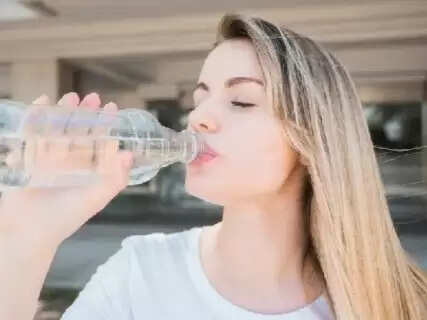
We’ve all been there. You find a bottle of water that’s been sitting in your car for who knows how long, or you wake up and take a sip from the glass you left on your nightstand. It's just water, it can't go bad, right?The answer is a little more interesting than a simple yes or no. While water itself doesn't expire, the way it's stored and what it's stored in can definitely affect its quality and safety.So, What's With the Expiration Date on Bottles?That date you see stamped on a plastic bottle isn’t for the water; it's a "best by" date for the bottle.own over time.When a plastic bottle is exposed to heat and sunlight—think of it baking in your car's cup holder—it can start to leach tiny amounts of chemicals into the water This won't just give the water a weird, plasticky taste, but it raises some long-term health concerns.So, while the water inside is technically fine, its plastic container has a limited lifespan. Unopened and stored in a cool, dark place, bottled water can remain perfectly good for yearsOnce You Open It, the Clock Starts TickingThe moment you break the seal on a bottle or leave a glass of water out, you're inviting the outside world in.Your Nightstand Water: When water is left open to the air, it starts to absorb carbon dioxide. This slightly lowers its pH, which can make it taste a little "flat" or stale by morning. More importantly, any dust or microbes floating around can settle in your glass. While it’s generally not harmful, it's not the freshest sip you can take.Refilling Your Bottle: Every time you take a sip from a bottle, you're introducing bacteria from your mouth into the water. In the warm, damp environment of a bottle, these microbes can multiply quickly. This is why it’s so important to wash your reusable bottles every day with soap and hot water—they can get surprisingly germyStoring Tap Water: If you're saving tap water for emergencies, you're in good shape for a while. The chlorine added to most municipal water helps prevent bacterial growth. If you keep it in a clean, sealed, food-grade container and store it in a cool, dark place, it can be safe to drink for up to six months.The Bottom Line: Simple Tips for Safe DrinkingCool and Dark is Best: Always store water away from direct sunlight and heatChoose Your Container Wisely: For long-term storage or daily reuse, glass or stainless steel bottles are better choices as they don't leach chemicals and are easier to keep clean.Wash It Daily: Treat your reusable water bottle like any other dish and give it a good wash at the end of each day.Trust Your Senses: If water smells or tastes off, don't drink it. It’s always better to be safe and grab a fresh glass.So, while water is one of the most stable things on the planet, how we handle it matters. A little care can ensure that every sip you take is as clean and refreshing as it should be.
Around the web

